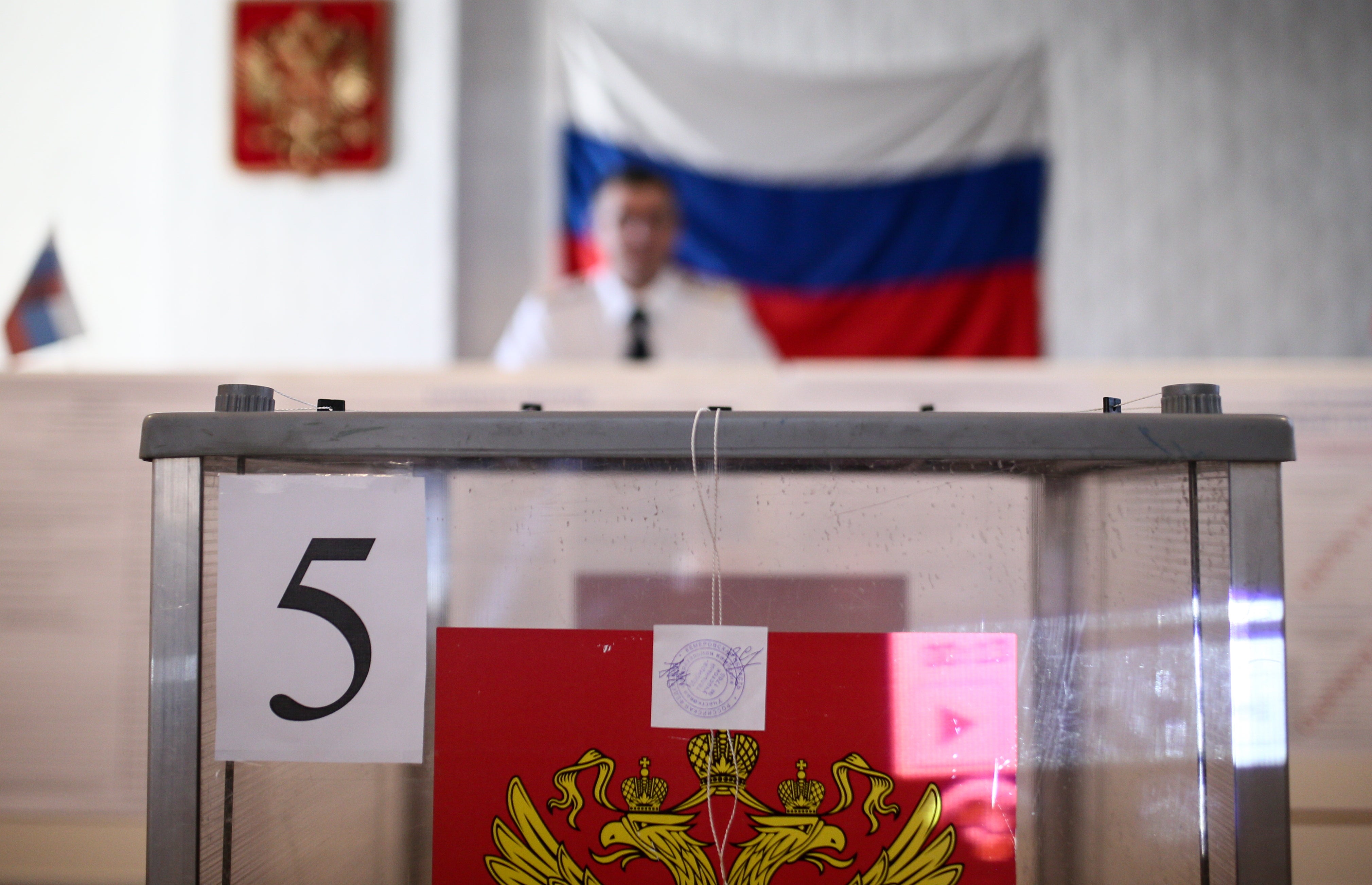Russian election: Google and Apple remove Navalny app as Russia goes to the polls
The Kremlin secured a major concession from Apple and Google on Friday as the tech giants blocked tactical voting tools promoted by jailed opposition leader Alexei Navalny

Early voting for Russia’s legislative elections has begun in much the same way as the campaign ended: with scandal, repression and censorship.
This time, US tech giants Apple and Google were the newsmakers, sensationally agreeing to Kremlin requests to block jailed opposition leader Alexei Navalny’s tactical voting app. Mr Navalny’s team described the Friday morning move, which came after months of pressure from authorities, as “an act of censorship” and “big mistake”.
In response, Apple issued a statement of formal legalese – the tech giant had removed the “smart voting” app to comply with a local court ruling that declared the Kremlin foe’s activity as “extremist”, it said. The company made no mention of the obvious political backdrop.
The development comes at the end of an increasingly ugly Kremlin campaign to defend its dominance of parliament. It’s an operation that has included fraud, arrests, jail, media censorship and banning of pretty much any source of dissent.
Last time around, in 2016, the ruling United Russia party secured a record 343 seats of the 450 on offer. Fake opposition parties won the rest. It was a result secured with a minimum of scandal, and fuelled by low turnout, a patriotic post-Crimean surge, and Russia’s mixed electoral system that favours the majority party.
Few doubt the Kremlin will secure another landslide this time around – through means fair and quite foul. But there are signs a surprise or two might be in the offing.
On the one hand, falling living standards have seen United Russia haemorrhaging support, with the Communists one of the main beneficiaries of that discontent. Even official state opinion polls show the authorities are now barely capable of controlling 30 percent of the electorate – quite an achievement for an authoritarian system.
On the other hand, Mr Navalny’s “smart voting” programme, which encourages voters to vote for the candidate most likely to defeat ruling party candidates, has attacked the pillars of Russia’s “managed democracy” at their foundation.
Team Navalny’s list of approved candidates, published on Thursday, does two things: creates a virtual party for their jailed leader; and provides an outlet for a protest vote, a reincarnation of the “against all” option, which used to win many elections before it was withdrawn in 2006.
Authorities have responded with a traditional game of carrot and trick. That means incentives to vote, from free cinema tickets (Tatarstan) to free food (in Russian-controlled separatist regions). And a campaign of black electoral arts to make sure voters tick the right box (or it is ticked for them.)
In St Petersburg, the Putin critic Boris Vishnevsky has found himself surrounded by two duplicate challengers, featuring identical beards, bald patches, and names after changing them by deed poll. In Moscow, Stas Baretsky, a for-hire political showman attempted to equate Communists and mass murderer Viktor Mokhov with a “protest” in front of the State Duma in “support” of both.
Three days of voting, the introduction of electronic voting, and the absence of international monitors have added further democratic vulnerabilities.
Given the Kremlin’s control over election processes, including, in some regions, rewriting results if other means fail, there is little prospect of anything other than overwhelming victory for their United Russia party. But the appearance of even one independent voice in the Duma represents a challenge to the Kremlin ahead of a likely transition period in which the legislature might become important. And there are signs candidates in Moscow, St Petersburg, Siberia and the Far East could break through.
In an Instagram post dictated to lawyers, Mr Navalny said his imperfect approach to unfree elections was the only way to get independent deputies back into parliament. He urged people not to feel despondent, but to vote. “I don’t compare myself with Alexei Navalny who is free, who has opportunities, an office and network,” he said. “But with Alexei Navalny who does nothing.”
Abbas Gallyamov, an elections specialist and consultant to several candidates in the campaign, suggested turnout was the key metric that could make or break the elections for the Kremlin. Focus groups showed loyalist voters have become unmotivated, he said – they are now as frustrated with the direction of the country as the opposition. Opposition inclined voters, meanwhile, felt highly conflicting emotions: on the one hand anger, on the other depression that nothing can change.
“Which one of these impulses emerges stronger will determine just how difficult things will be to control,” he said. “You don’t have to falsify if your opponents simply don’t turn out.”
The authorities, meanwhile, face their own conflict: how far down the road of falsification they go, knowing that scandal and protest will undermine any claims they have to legitimacy.
But this is a fairly easy choice, suggests Gallyamov: “Between scandal or parliamentary control, the Kremlin will always choose the latter. They know they have a tried and tested national guard they can rely on.”
Join our commenting forum
Join thought-provoking conversations, follow other Independent readers and see their replies
0Comments